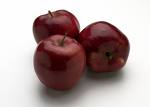How to Eat Healthy on a Budget
 When it comes to food, the best things for you certainly aren’t free. In fact, research indicates that healthy eaters often spend more on food than their less healthy counterparts, and to follow a diet in line with the USDA’s latest nutrition recommendations would add hundreds of dollars to the average person’s annual food expenses.
When it comes to food, the best things for you certainly aren’t free. In fact, research indicates that healthy eaters often spend more on food than their less healthy counterparts, and to follow a diet in line with the USDA’s latest nutrition recommendations would add hundreds of dollars to the average person’s annual food expenses.
In a new study from the University of Washington, researchers surveyed 2,000 adults in King County and analyzed their self-reported diets for nutrient content and cost. Their findings illustrated what you might already suspect: Not only were grains, sugars, and fats cheaper than fruits and vegetables on a per calorie basis, but consumers typically had to increase their food budget to incorporate recommended nutrients like potassium, dietary fiber, vitamin D, and calcium into their diet. For example, individuals who consumed potassium in accordance with the 2010 Dietary Guidelines added an average of $380 a year to their annual food cost.
Previous studies have shown the same patterns. Research published in the American Journal of Clinical Nutrition showed that among 78,000 women surveyed, the healthiest eaters were spending 24% more on food than women who ate less nutritiously.
Discouraging? Sure. But before you spend major cash on groceries, or give up on healthy eating altogether, read on for eight smart money-saving tips that will help you eat well without breaking the bank.
Blue Cross Blue Shield of NCoffers discounts in premium to individuals in excellent health. Practice fitness and make good nutritional choices and you may qualify.
Make a List
“One of the most important things is planning ahead, so you can use what you already have in your freezer, cupboards, and fridge.” says Peggy Martin, lead author of the Iowa State University Extension website Spend Smart, Eat Smart. “We know from research that a lot of food goes to waste.” The average American family throws away 14% of their food, according to a USDA study. This adds up to almost $600 each year. So make a point to use what you have in the cupboards, or have a plan about how you will do so, before you go shopping again. By preparing before you hit the market, you will also be less likely to make costly impulse buys.
Don’t forget to add these surprisingly cheap fresh foods: carrots, spinach, red cabbage, green beans, bananas, oranges, and pears to your grocery list.
This post is from Fitbie, fitbie.msn.com by Mary Squillace.
For more information on health insurance coverage in North Carolina, please visit our website at www.nchealthplans.com or call our toll free number 888-765-5400 and speak with one of our professional agents. Our agency provides coverage for health insurance in North Carolina through Blue Cross Blue Shield of North Carolina (BCBSNC). You may qualify for a 15% healthy lifestyle discount if you are in excellent health. Call us for details.